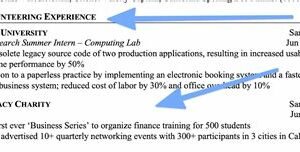Table of Contents
Volunteer work with migrants offers a rewarding opportunity to make a positive impact in the lives of individuals who have been displaced from their homes. Engage in meaningful activities such as language assistance, cultural integration, and providing support during their resettlement process. Join us in fostering compassion, understanding, and solidarity among diverse communities.
Volunteer work with migrants is a unique opportunity to make a profound impact on the lives of individuals who have left their homes in search of a better future. As the world becomes increasingly interconnected, migration has become a pressing issue, and volunteers play a crucial role in providing support and assistance to those in need. Through their tireless efforts, volunteers not only contribute to the social and economic integration of migrants but also foster a sense of solidarity and understanding among diverse communities. In this paragraph, we will explore the transformative power of volunteer work with migrants and the valuable contributions that can be made in this field.
Introduction
Volunteer work with migrants is a powerful and rewarding way to contribute to society and make a positive impact on the lives of individuals who are seeking refuge and a better future. By offering your time, skills, and compassion, you can help migrants navigate the challenges they face in a new country, provide essential support, and promote their integration into local communities. This article explores the importance of volunteer work with migrants, the benefits it brings to both volunteers and migrants, and how you can get involved.
The Importance of Volunteer Work with Migrants
Volunteer work with migrants plays a crucial role in addressing the complex needs of individuals who have been forced to leave their homes due to conflict, persecution, or economic hardships. These migrants often arrive in unfamiliar territories with limited resources and face numerous barriers to integrating into their new communities. Volunteers can provide much-needed assistance, support, and guidance during this challenging period of transition.
Benefits of Volunteering
Engaging in volunteer work with migrants offers numerous benefits, both for the volunteers themselves and the migrants they assist. For volunteers, it provides an opportunity to gain valuable cross-cultural experiences, enhance their communication and language skills, and develop a deeper understanding of global issues. Additionally, volunteering can boost self-confidence, increase empathy and compassion, and create lasting friendships with people from diverse backgrounds.
Supporting Integration
One of the primary goals of volunteer work with migrants is to support their integration into the local community. Volunteers can help migrants learn the local language, navigate public services, find employment opportunities, and access healthcare and education. By offering practical assistance and emotional support, volunteers empower migrants to become active participants in their new societies and foster a sense of belonging.
Types of Volunteer Work
Volunteer work with migrants can take various forms, depending on the specific needs of the individuals and the organizations involved. Some common types of volunteer work include:
- Language and cultural exchange programs
- Educational support for children and adults
- Providing legal aid and guidance
- Assisting with job training and employment search
- Organizing recreational activities and events
How to Get Involved
If you are interested in volunteering with migrants, there are several steps you can take to get involved:
- Research local organizations: Identify organizations in your community that work directly with migrants and inquire about volunteer opportunities.
- Attend information sessions: Attend information sessions or orientations provided by these organizations to learn more about their mission, values, and volunteer requirements.
- Offer your skills and expertise: Assess your skills and identify how they can be valuable to migrants. Whether it’s teaching a language, providing legal advice, or offering emotional support, your expertise can make a significant impact.
- Commit to regular volunteering: Determine how much time you can dedicate to volunteering and discuss your availability with the organization. Consistency is key for building trust and establishing meaningful connections.
- Complete required training: Depending on the nature of the volunteer work, you may need to undergo specific training or background checks to ensure the safety and well-being of both volunteers and migrants.
Challenges and Considerations
It is essential to acknowledge that volunteer work with migrants can present certain challenges and considerations. Working with individuals who have experienced trauma or face significant barriers requires sensitivity, empathy, and cultural understanding. Volunteers should also be aware of their own limitations and the importance of self-care to prevent burnout or compassion fatigue.
Conclusion
Volunteer work with migrants is a powerful means of fostering integration, providing support, and promoting social cohesion. By dedicating your time and skills, you can make a tangible difference in the lives of migrants and contribute to building more inclusive communities. Remember, volunteering is not just about helping others; it is also a transformative experience that broadens perspectives, deepens compassion, and connects people from diverse backgrounds.
Introduction to Volunteer Work With Migrants:
Volunteer work with migrants involves actively engaging with individuals who have relocated or sought refuge in a different country. This important role entails providing support, resources, and assistance to help migrants integrate into their new communities. As a volunteer, you can contribute to enhancing their quality of life and help foster a sense of belonging.
Providing Language and Cultural Assistance:
Volunteers working with migrants often play a vital role in offering language classes and cultural orientation. By assisting migrants in improving their language skills, understanding local customs, and navigating everyday situations, volunteers empower them to communicate effectively, build relationships, and adapt to their new environment with confidence. Transition words such as By and empower help connect the ideas within this paragraph.
Organizing Educational and Vocational Programs:
Volunteer work can involve organizing educational and vocational programs for migrants, aiming to equip them with the necessary skills to succeed in their adopted country. Such initiatives often include job training workshops, resume writing assistance, entrepreneurial guidance, and mentoring programs that provide migrants with valuable tools for economic integration and self-sufficiency. The use of transition words like aiming and often helps provide additional information and examples within this paragraph.
Promoting Health and Well-being:
Volunteers have a unique opportunity to support migrants in accessing healthcare services, promoting physical and mental well-being. This can involve organizing health screenings, facilitating access to medical professionals, and providing information on available healthcare resources. By addressing the specific needs of migrants, volunteers can contribute to improving their overall health outcomes and ensuring equitable access to care. Transition words like Given and By help establish the cause and effect relationship in this paragraph.
Assisting in Legal Processes:
Given the complex legal challenges migrants might face, volunteers can offer crucial assistance by providing information and resources on navigating immigration procedures, accessing legal aid, and understanding their rights. By working closely with legal professionals and organizations, volunteers can help alleviate some of the stress and uncertainty that migrants may experience during this process. The use of transition words like Given and By help establish the cause and effect relationship in this paragraph.
Fostering Social Integration:
Volunteer work plays a significant role in fostering social integration among migrants and their host communities. By organizing cultural exchange events, community gatherings, and diversity awareness campaigns, volunteers can contribute to creating inclusive environments where migrants are actively welcomed and embraced by the local residents. Transition words such as By and can contribute to help connect the ideas and explain the impact of volunteer work on social integration.
Providing Emotional Support:
Relocation and displacement can often take an emotional toll on migrants, who may face challenges such as homesickness, isolation, or trauma. Volunteers can offer invaluable emotional support by providing a compassionate ear, organizing support groups, or connecting migrants with appropriate mental health services. A sense of belonging can help migrants build resilience and positively adjust to their new surroundings. The use of transition words like can offer and can help emphasizes the potential impact of emotional support on migrants’ well-being.
Advocating for Migrant Rights:
Volunteers engaged in migrant work can also advocate for the rights and well-being of migrants on a broader scale. This might involve participating in rallies, raising awareness on social media, and collaborating with advocacy organizations to address systemic barriers and strive for comprehensive immigration policies that uphold human rights. Transition words like also and This might involve help introduce the idea of advocating for migrant rights and explain the potential actions volunteers can take.
Volunteer work with migrants serves as a crucial means of support and assistance for individuals who have left their home countries in search of better opportunities or to escape challenging circumstances. Engaging in this type of work requires a professional voice and tone to effectively address the important issues surrounding migration and provide a positive impact on the lives of migrants.
When volunteering with migrants, it is essential to approach the work with empathy and understanding, while maintaining a professional demeanor. Here are some key points to consider when engaging in volunteer work with migrants:
Education and Awareness: As a volunteer, it is important to educate yourself on the various reasons why individuals migrate and the challenges they face. This knowledge will help you understand their needs better and offer appropriate support.
Cultural Sensitivity: Migrants come from diverse backgrounds and cultures. It is crucial to approach their unique needs and experiences with respect and sensitivity. Being aware of cultural differences and adapting your approach accordingly will foster trust and effective communication.
Language Support: Many migrants face language barriers in their new environments. Offering language support, such as language classes or translation services, can greatly enhance their ability to integrate and access essential resources.
Legal Assistance: Navigating through legal processes can be overwhelming for migrants. Volunteers can provide valuable assistance by connecting migrants with legal resources and helping them understand their rights and responsibilities.
Healthcare Access: Access to healthcare is often a challenge for migrants. Volunteers can assist by providing information about healthcare services and supporting migrants in accessing necessary medical care.
Employment and Skills Development: Helping migrants find employment or develop skills that are in demand in their new communities can significantly improve their chances of successful integration. Volunteers can offer guidance, job search support, or even mentorship programs.
Promoting Social Inclusion: Isolation and discrimination are common experiences for migrants. Volunteers can organize social activities, cultural events, or workshops that promote inclusivity and help migrants build connections within their new communities.
Remember, maintaining a professional voice and tone is crucial when working with migrants as it helps establish credibility and trust. By approaching volunteer work with migrants in a professional manner, we can positively impact their lives and contribute to creating more inclusive and welcoming societies.
Thank you for taking the time to visit our blog and learn more about volunteer work with migrants. We hope that this article has provided you with valuable insights into the importance of this work and how you can get involved. As a professional in the field, it is essential to approach this topic with a professional voice and tone, as the work we do is of utmost importance and requires a high level of dedication and commitment.
Firstly, it is crucial to acknowledge the significance of volunteering when it comes to supporting migrants. Transitioning to a new country can be an incredibly challenging experience, and migrants often face numerous barriers, such as language barriers, cultural differences, and limited access to resources. By offering our time and skills as volunteers, we can make a positive impact on their lives and help them navigate these challenges more successfully. Whether it’s teaching English, providing legal assistance, or offering emotional support, every little contribution counts.
Moreover, volunteering with migrants allows us to foster a sense of empathy and understanding. Transitioning to a new culture can be a daunting experience, and by working closely with migrants, we can gain a deeper understanding of their struggles, their hopes, and their dreams. This experience not only broadens our horizons but also helps break down stereotypes and prejudices that may exist. Through our actions and interactions, we can promote a more inclusive society that embraces diversity and celebrates the contributions of migrants.
In conclusion, volunteering with migrants is a powerful way to make a difference in their lives while also enriching our own. By offering our time, skills, and compassion, we can provide much-needed support to those who need it most. It is important to remember that this work requires professionalism, as we are dealing with sensitive issues and vulnerable individuals. So, whether you are already involved in volunteer work or considering getting started, we encourage you to approach it with a professional voice and tone, always keeping in mind the impact you can make and the positive change you can bring.
Thank you once again for visiting our blog, and we hope that you feel inspired to take action and make a difference in the lives of migrants through volunteering. Together, we can create a more inclusive and compassionate society.
.
1. What is volunteer work with migrants?
Volunteer work with migrants refers to the act of offering one’s time, skills, and services to support and assist individuals who have migrated or been forced to flee their home countries due to various reasons such as conflict, persecution, poverty, or natural disasters. Volunteers play a crucial role in providing essential services, advocating for migrants’ rights, and promoting their integration into new communities.
2. How can I get involved in volunteer work with migrants?
There are several ways to get involved in volunteer work with migrants:
- Research local organizations: Look for non-profit organizations, community centers, or refugee resettlement agencies in your area that specifically focus on supporting migrants. Reach out to them to inquire about volunteer opportunities.
- Attend volunteer orientation sessions: Many organizations that work with migrants offer orientation sessions to provide an overview of their programs and the specific roles available for volunteers. Attend these sessions to learn more and express your interest.
- Offer your skills and expertise: Think about what skills you possess that could benefit migrants. Are you fluent in a particular language? Do you have teaching or counseling experience? Can you offer legal assistance or medical aid? Identifying your strengths will help you find the most suitable volunteer opportunities.
- Volunteer remotely: If you are unable to physically volunteer due to location or other constraints, consider offering your services remotely. Many organizations have virtual volunteering programs that allow you to contribute from anywhere in the world.
3. What are the benefits of volunteering with migrants?
Volunteering with migrants can be a rewarding and enriching experience for several reasons:
- Make a meaningful impact: By volunteering, you have the opportunity to directly contribute to improving the lives of migrants who may be facing numerous challenges.
- Learn about different cultures: Working with migrants exposes you to diverse cultures, traditions, and perspectives, promoting cultural understanding and appreciation.
- Develop new skills: Volunteering often provides opportunities to learn and develop valuable skills such as intercultural communication, conflict resolution, or language proficiency.
- Expand your network: You can connect with people from various backgrounds, including other volunteers, professionals, and migrants themselves, creating a diverse network that can enhance your personal and professional life.
- Gain a sense of fulfillment: Knowing that you are making a positive difference in someone’s life can bring a deep sense of satisfaction and purpose.
4. What challenges might I encounter when volunteering with migrants?
Volunteering with migrants can present certain challenges:
- Language barriers: Communication may be hindered if you do not share a common language with the migrants you are assisting. Organizations may provide interpretation services or offer language training to help overcome this challenge.
- Emotional strain: Listening to migrants’ stories and witnessing their hardships can be emotionally taxing. It is important to practice self-care and seek support from fellow volunteers or professionals if needed.
- Cultural differences: Understanding and respecting cultural differences is crucial to providing effective support. Being open-minded and willing to learn can help bridge any cultural gaps that may arise.
- Legal complexities: Depending on the nature of your volunteer work, you may encounter legal complexities related to immigration laws or documentation requirements. Familiarize yourself with relevant regulations or seek guidance from the organization you are volunteering with.
5. How can I ensure my volunteer work with migrants is impactful and respectful?
To ensure your volunteer work with migrants is impactful and respectful, consider the following:
- Listen and learn: Take the time to listen to migrants’ experiences, needs, and aspirations. Acknowledge their expertise and involve them in decision-making processes.
- Respect cultural diversity: Embrace and respect the cultural diversity of migrants. Understand that there may be different ways of doing things or interpreting situations, and avoid imposing your own beliefs or values.
- Seek cultural competence training: Educate yourself on cultural competency to better understand the specific needs and challenges faced by migrants from different backgrounds.
- Collaborate with local organizations: Work alongside established local organizations that have experience in supporting migrants. Collaborating with them ensures your efforts are aligned with the needs of the community.
- Regularly evaluate and adapt: Continuously assess the impact of your volunteer work and be open to feedback. Adapt your approach based on the evolving needs and circumstances of the migrants you are assisting.
Remember, volunteer work with migrants is an opportunity to make a positive difference in the lives of others while fostering understanding and empathy.






